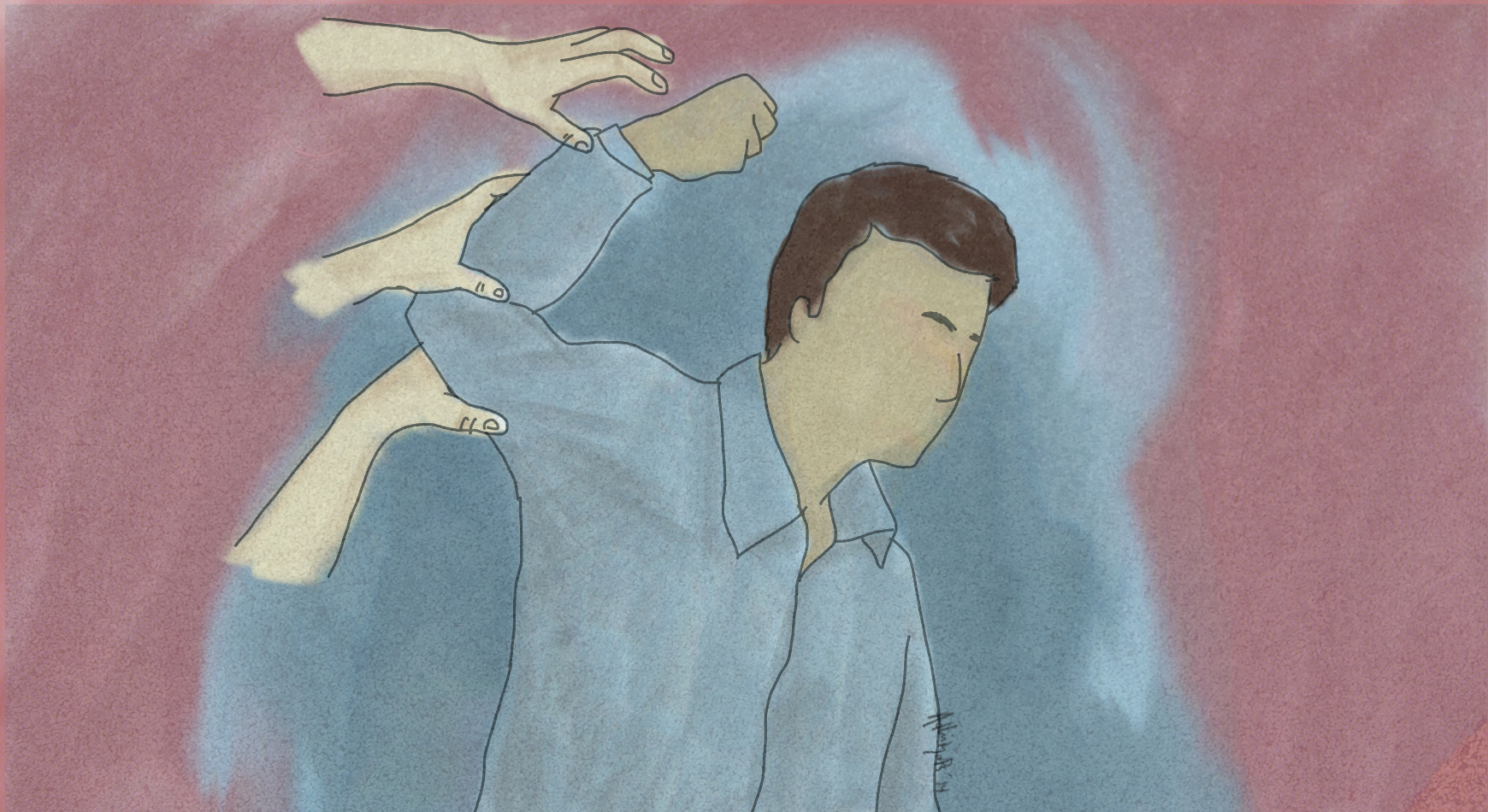My friend Joanna Chiu wrote a Twitter thread that was widely shared, including among Indonesian feminists. She was on an airplane when she noticed that the passenger behind her was harassing a teenager. Chiu warned him, and when he left for the toilet, she and another woman comforted the teenager and called a flight attendant. Finally, the flight attendants moved the man away to another row.
Discussions followed for days on whether male passengers would have intervened. Some men said they would, but honestly, they never encountered such case. If anything, it seems that these men are proud to lose themselves in books or movies and don’t notice anything nearby.
Some women think maybe the men were being honest. Such is male privilege, to be able to travel without worrying that any stranger, any random man, would harass them.
I became an intervener on a bus in Stockholm, when a man made vulgar finger gestures at the woman sitting next to me. I exchanged look with the man sitting next to him, and we stared at him, while I was not sure about what to do next. Luckily, he got off the bus at the next stop. I hesitated to ask the woman if she’s alright (she kept her eyes on her phone throughout the incident), and my local co-intervener also said nothing. I don’t know if I would initiate intervention in Indonesia; many people advised me against intervening.
But a decade ago, I was a creep. I was so clingy to several female friends I liked and made them felt uncomfortable with me. In the end we kept our friendships, but I had damaged their trusts and safety. At the lowest point of my university life, I hit on teenagers just months after knowing them.
At that time, I felt I was just unlucky in love. I imagined I could be like John Cusack, whose characters find love through mere obsessions, or like Asian guys who I saw holding hands with high schoolers across the Chinatown. On the other hand, I felt pressured by Western pop culture which characterizes Chinese men as either gay or asexual, and I felt that my singleness confirmed the stereotype.
In late 2000s, I related myself to Ted Mosby, and since Barney Stinson is a pickup artist, I learned to be a pickup artist, although the worst thing I did was smiling at random women crossing my path in malls (it’s still bad). By the time How I Met Your Mother ended, I was on a course to change my life.
Many other men, unfortunately, took the other path. In forums, communities, and social media groups, men blamed women for not giving them attention, love, and sex. Frustration turned to misogyny, and misogyny turned into homophobia and racism. White men turned to white supremacy while Muslim men turned to Islamism, both believing that there is a conspiracy to promote women and minorities at the cost of their happiness.
In Indonesia, social media have helped educating more people on what feminism can do to improve yourself and your communities. On the other hand, social media have also normalized racist and sexist memes, and some people find them funny. After all, Indonesians and Americans watch the same American movies, follow the same American celebrities, and read the same American websites. Even though racism has different contexts in the United States and Indonesia, sexist and homophobic ideas are shared in both societies.
Everywhere today, heterosexual men worry that women won’t date or marry them, they worry that women will take more managerial and technical occupations, they worry that human sexuality isn’t like what they usually understand. Hence, they are picking fights with women online, on topics as diverse as housekeeping, dating, and catcalling.
Sometimes, the “How should an awkward guy know?” and “Well, what can I say, then?” questions are used. Let’s assume that the questioner is being sincere. He is socially inept, he is not a creep but wants to open a quality conversation with the woman.
Recently an Australian man wrote on Twitter that he went outside to buy milk, and was about to cross path with a group of girls. The girls looked uncomfortable, he saw the cue, and he kept his distance away. He knew he’s not a creep, but it’s not the girls’ fault to be suspicious. It’s not about his pride, it’s about their safety.
I am in my late thirties with a much younger look and people who have met me might notice my awkwardness. Being awkward doesn’t hinder me from socializing including with women. An advice I can offer is not to act like a creep, talking with innuendos and disrespecting personal space. And know your own age. In the words of financial advisor Ligwina Hananto, “don’t be an om-om genit “– creepy old man.
The second question comes from men’s fear that if he doesn’t make “the move,” another guy will. Many women have said that they have other businesses besides dealing with random men picking on them. Perhaps women prefer to date men who are familiar enough for them. So, my answer to the question is: if you’re interested in asking a woman out, ask a woman who has known you well enough. This is why men should welcome, instead of alienate, women who have similar interests or hobbies with them.
Many feminists believe that our cultures have to change perception on masculinity. This perception is changing everywhere, but not fast enough in many countries, and men of diverse backgrounds are resisting changes, including by harassing women.
Then maybe gentlemen, we have to keep our eyes and ears open. To spy cameras. To the cool guys and their sexist jokes. To boys who think girls can’t play with them. To predators in public places, whatever they look like.
If you believe that women are manipulative and cruel too, then I can’t convince you further. But if you’re a man who believes you’re just misunderstood, then I hope my thoughts could help you improve.
Illustration by Adhitya Pattisahusiwa








Comments